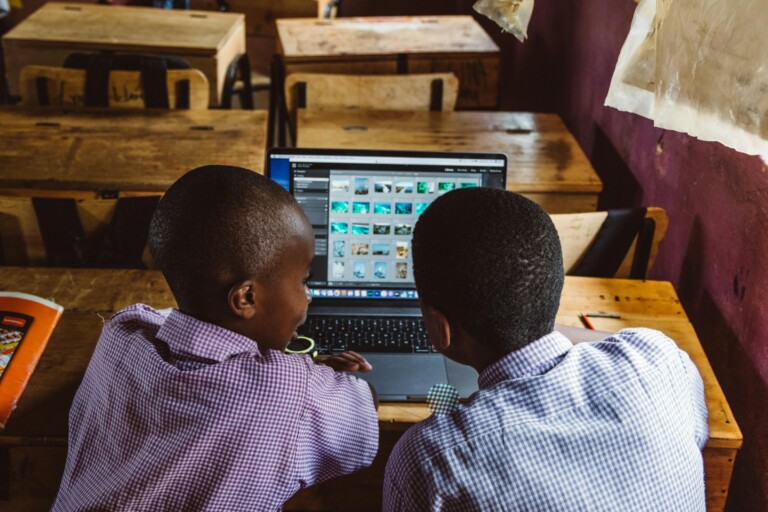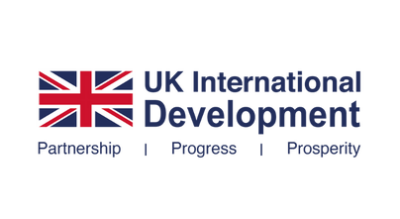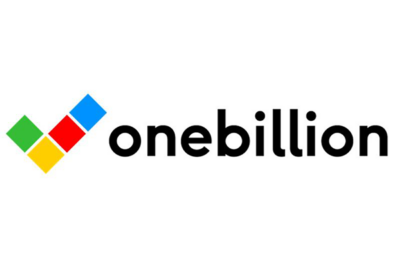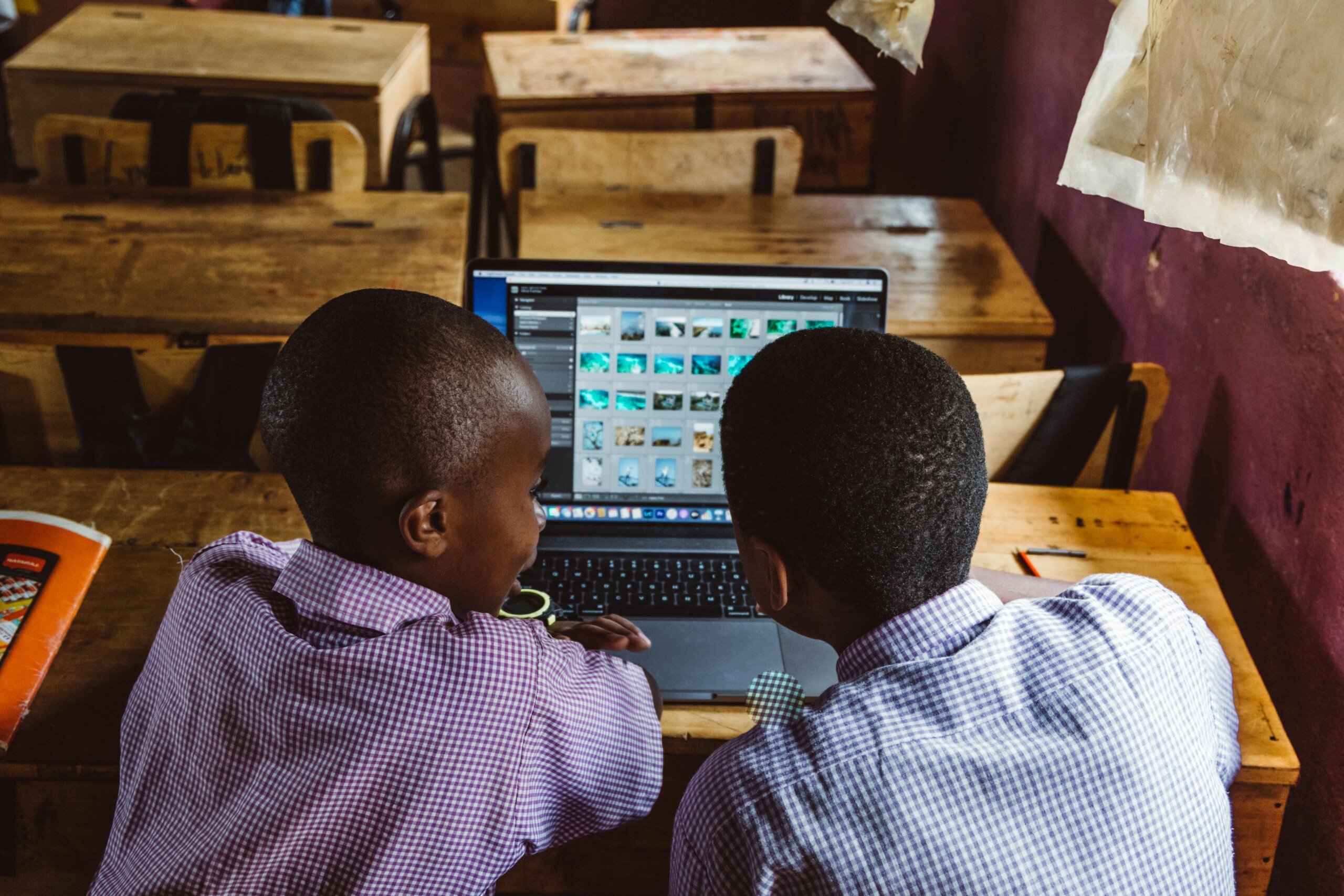Special educational needs and disabilities
BRIDGING THE GLOBAL EVIDENCE GAP

Fast facts
- The challenge
- Our role
- Activities
For nearly 240 million children living with disabilities globally, technology has the potential to revolutionise access to education, fostering independence, agency, and social inclusion. Yet, despite its promise, EdTech remains underutilised for learners with Special Educational Needs and Disabilities (SEND), particularly in low- and middle-income countries (LMICs).
Evidence on the effective use of EdTech for learners with SEND remains limited, as well as guidance on balancing cost, and strategic implementation, which contributes to its underuse in many contexts. EdTech Hub’s SEND work looks to fill strategic priority evidence gaps. We are working hands-on with decision makers in Ghana and Malawi to understand how technology can be used to ensure learners with neurodivergent conditions and learning difficulties receive quality education, and to support teachers and caregivers to support the diverse needs of learners with SEND.
EdTech Hub has contributed evidence to address gaps for learners with Special Educational Needs and Disabilities, and our current work includes:
- Reviewing the use of EdTech to support neurodivergent learners, particularly in LMICs.
- Producing a policy brief on Ghana’s Inclusive Education Policy.
- Supporting the development of tech-enabled screening and remote teacher support in Ghana.
- Co-developing a learning agenda in Malawi for EdTech for SEND.
- Supporting a pilot in Malawi bite-sized, personalised video content focused on improving teacher performance, including their awareness of SEND conditions.
Explore more
- Africa
- South and Southeast Asia
- Global work
- Ghana (coming soon)
- EdTech for learners with neurodivergent conditions and learning difficulties
- EdTech to support teachers and caregivers ensure quality education for learners with SEND
- Dr. Nicola Pitchford
- Dr. Aida Layachi
- Dr. Nidhi Singal (University of Cambridge)
You can explore all publications on EdTech for SEND in the evidence library, or view our curated list below, organised by country and focus area.
Commonly asked questions
Curious about our work? Explore our collection of frequently asked questions, complete with quick and insightful answers. Go to our Q&A section.
Watch and listen
Explore videos, soundbites, and more from EdTech Hub’s work and engagements on EdTech for learners with SEND.
About EdTech for SEND ➜
“We need more country-wide research on EdTech, that can bring us a situational analysis of how EdTech is being used, designed, developed and implemented…I would love this to focus on EdTech for teacher training, and curriculum development to support learners with various disabilities.”
– Jenipher Mbukwa Ngwira, lecturer on SEND at MBAS
While EdTech holds promise for learners with special needs and disabilities, evidence remains limited, particularly when it comes to learners with neurodivergent conditions and learning differences.
Many educators may not feel adequately equipped to support learners with SEND, and often lack clear guidance on how to engage with these students. Caregivers and the wider community may also have limited awareness of how best to provide support. EdTech has the potential to help improve understanding of SEND and offer practical ways to better support learners in accessing a quality education.
Millions of learners with SEND risk being left behind, deepening inequalities and excluding entire communities from quality education. EdTech offers some powerful tools but more evidence is needed to ensure EdTech can be used to bridge this gap.
Join us in bridging the evidence gap. Read on for resources, research, and tools to support your work.
EdTech Hub’s work ➜
Our focus is on bridging the evidence gap by providing insights that help decision-makers improve the assessment of learning and behavioural needs, ensuring that more learners can benefit from tailored interventions.
We also aim to empower decision-makers with the information they need to support teachers and caregivers, enabling them to confidently assist learners with special educational needs and disabilities and create an inclusive environment for all.
At the national level, we collaborate with governments to strengthen policies and programmes in low- and middle-income countries, using evidence to ensure these initiatives effectively address the needs of learners and leave no child behind.
“EdTech for SEND is important…as a ministry, our role towards our population who has a disability is to ensure they are equally accessing services that any other citizen is accessing. It will be a loss if persons with disabilities are missed out in education technology innovations, because research has shown that there are barriers [to accessing education] that could be overcome through innovations that EdTech can provide.”
– Mayeso Malembo, Deputy of Disability and Elderyl Affairs in the Ministry of Gender, Community, Development and Social Welfare, Malawi
[smartslider3 slider=”2″]
Resources by Country
Africa
MALAWI
April, 2024 │ Blog
EdTech for Special Educational Needs and Disabilities in Malawi: Setting the Research Agenda
KENYA
October, 2023 │ Report
The Use of Technology to Promote Equity and Inclusion in Education in North and Northeast Kenya
South & Southeast Asia
August, 2024 │ RER
EdTech for Learners With Hearing and Visual Impairments: A Rapid Evidence Review for the Southeast Asian Region
August, 2024 │ RER
EdTech for Learners With Cognitive and Learning Disabilities: A Rapid Evidence Review for the Southeast Asian Region
November, 2022 │ Paper
EdTech That Reaches Marginalised Learners: Relevant Examples for the Indonesian Context
PAKISTAN
June, 2020 │ Sandbox
Using Laptops to Distribute Video Sign Language Lessons to Deaf Children in Pakistan
PAKISTAN
June, 2020 │ Topic Brief
Pakistan Distance-Learning Topic Brief: Primary-level Deaf Children
Global
March, 2021 │ Lit Review
EdTech for Learners with Disabilities in Primary School Settings in LMICS: A Systematic Literature Review
April, 2021 │ Policy Brief
How Can EdTech Support Primary School Learners with Disabilities in LMICs? Recommendations for Policy
April, 2020 │ Report
Using Education Technology to Support Students with Special Educational Needs and Disabilities in Low- and Middle-Income Countries
November, 2020 │ Report
Guidance Note 4: Inclusion and accessible learning for people with disabilities (From the report: Education for the most marginalised post‑COVID-19: Guidance for governments on the use of digital technologies in education)
Resources by topic
EdTech for learners with neurodivergent conditions and learning difficulties
August, 2024 │ RER
EdTech for Learners With Cognitive and Learning Disabilities: A Rapid Evidence Review for the Southeast Asian Region
March, 2021 │ Lit Review
EdTech for Learners with Disabilities in Primary School Settings in LMICS: A Systematic Literature Review
October, 2023 │ Report
The Use of Technology to Promote Equity and Inclusion in Education in North and Northeast Kenya
April, 2021 │ Policy Brief
How Can EdTech Support Primary School Learners with Disabilities in LMICs? Recommendations for Policy
EdTech to support teachers and caregivers ensure quality education for learners with SEND
October, 2023 │ Report
The Use of Technology to Promote Equity and Inclusion in Education in North and Northeast Kenya
April, 2021 │ Policy Brief
How Can EdTech Support Primary School Learners with Disabilities in LMICs? Recommendations for Policy
March, 2021 │ Lit Review
EdTech for Learners with Disabilities in Primary School Settings in LMICS: A Systematic Literature Review
Videos, soundbites and more
https://youtu.be/wIFA5TA69KQhttps://youtu.be/BcMPUBmTL4c?si=0yRaW8iEWAUkzVZm
Questions we get asked about EdTech for SEND ➜
What is EdTech Hub’s role in supporting SEND learners?
- We focus on bridging evidence gaps to drive innovation and scalability of EdTech solutions in SEND education in LMICs.
How can organisations collaborate with EdTech Hub?
We are looking for partners and collaborators that align with our mission to address SEND challenges. Get in touch to explore opportunities.
What are the biggest challenges in EdTech for SEND?
Learners have diverse, context-specific needs, and there is a critical need for evidence that addresses these challenges, particularly in LMICs. SEND learners need support that takes a holistic approach to their learning experience. EdTech has an important role to play, but must also consider how to make smart investments, sustainable and scalable implementation, and effective policy development to maximise its impact.
Proud to partner with global experts




see all resources on EdTech for SEND
¹Some work may appear in multiple sections and won’t always be tagged by region or country. This is because many projects span different contexts and focus areas. We’ve curated this list to help support a variety of search needs.


